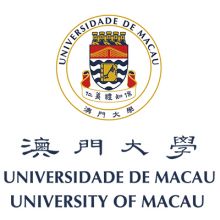Academics at Macao’s leading university are concerned that their institution is losing its international, multilingual atmosphere, with overseas lecturers feeling increasingly edged out.
Times Higher Education spoke to several academics – current and former employees at the University of Macau – who voiced concerns over the university orienting itself toward mainland China as Macao remains closed to foreigners due to pandemic measures.
“Since January 2020, foreign professors and postgraduates have been replaced by Chinese ones at an accelerating rate. The university now mirrors the city with its absence of foreigners,” said one current employee, who asked to remain anonymous.
A former Portuguese colony, Macao was returned to Chinese rule in the 1990s and is now a special administrative region, like Hong Kong. Its universities enjoy a greater degree of academic freedom than is generally found in mainland China. But as in Hong Kong, many scholars feel it is drawing closer to Beijing.
“Although English is still the university’s official language of instruction, Chinese has now become the dominant working language and the effort to remain multilingual has been forgotten against the background of the clear agenda to accelerate Macao’s absorption into mainland China,” said the lecturer, who added that the university management structure had also moved away from one of transparency.
“In an institution that formerly followed clear rules of conduct, professors are now resigned to a lack of accountability for decisions concerning everything from promotion to teaching load distribution,” she said. “University-level and faculty-level policies are suddenly changed and applied retrospectively – something that happens with increasing frequency.”
Another academic, who left the university during the pandemic and also requested anonymity, shared similar concerns. He feared that recent changes could damage the unique character of the institution, a “bridge” between East and West which he said “could not be easily replaced”.
“Many administrative meetings that used to be held in English are now held in Chinese and this automatically blocks international academics [from participating] unless they speak Chinese very well,” he said.
The academic said that the university did not interfere in the material he taught or his research. Still, he said that staff did not always feel free to voice their opinions on university strategy.
“There were outspoken people who were not promoted, so there was a sense that one would be rewarded if one would just passively sit in meetings and not ask questions of a more critical nature,” he said.
Zhidong Hao, a professor emeritus of sociology at the university who has been in the US for four years, noted that the previous leadership “was very good in allowing us to do whatever kind of research we wanted to do”.
“My general sense is that academic freedom was further eroded when the administration changed guard and the rectors are more likely recruited because of their pro-government credentials. This of course is in line with the general political climate in mainland China and Hong Kong.”
In a statement, Rui Paulo da Silva Martins, the university’s vice-rector for global affairs, did not address specific scholars’ claims, but said that the institution was continuing to pursue new collaborations globally, particularly in Europe, the UK and the Portuguese-speaking world.
“Over the years, internationalisation has been a strong characteristic of UM. Currently, the international network of UM covers 250-plus academic institutions in over 30 countries/regions,” he said.
“Although the pandemic has indeed made it challenging for us to recruit international staff and students, we have continued to provide support for our staff and students to minimise disruptions to their studies and research.”
Register to continue
Why register?
- Registration is free and only takes a moment
- Once registered, you can read 3 articles a month
- Sign up for our newsletter
Subscribe
Or subscribe for unlimited access to:
- Unlimited access to news, views, insights & reviews
- Digital editions
- Digital access to THE’s university and college rankings analysis
Already registered or a current subscriber? Login









